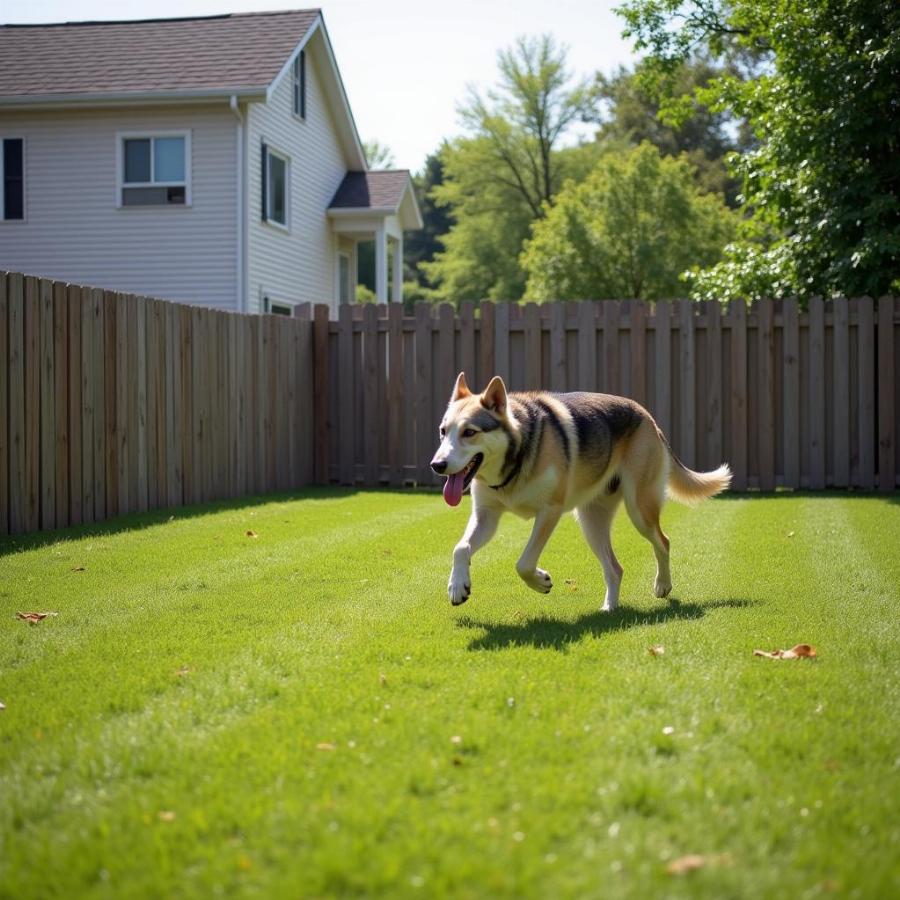Considering adopting a wolf dog? It’s undeniably tempting to invite a touch of the wild into your home. The allure of these majestic creatures, with their striking looks and captivating gaze, is undeniable. But, before you welcome a wolf dog into your life, it’s crucial to understand the commitment involved. Owning a wolf dog isn’t like having your typical canine companion – it demands a unique understanding of their needs, temperament, and the responsibility that comes with providing a safe and loving environment.
Understanding Wolf Dogs
Wolf dogs, as the name suggests, are a hybrid, a blend of domestic dogs and wild wolves. This mix creates a unique set of characteristics that sets them apart from both their wild and domesticated counterparts. Their appearance, temperament, and even their instincts can vary greatly depending on the percentage of wolf lineage.
Are Wolf Dogs Right for You?
Before bringing a wolf dog home, ask yourself:
- Am I prepared for unpredictable behavior? Wolf dogs, even those with lower wolf percentages, can exhibit wild instincts like digging, chewing, and a strong prey drive.
- Can I provide adequate space? Wolf dogs thrive in ample space where they can roam and exercise their natural instincts. A small apartment won’t do.
- Do I have experience with demanding breeds? Wolf dogs aren’t for first-time owners. They need firm, consistent training from someone experienced in handling their unique needs.
Finding a Reputable Breeder or Rescue
If you’re certain a wolf dog is right for you, the next step is finding a responsible source.
- Do your research: Look for breeders or rescues specializing in wolf dogs. Check reviews and ask for references.
- Ask questions: A reputable breeder will be open about the wolf dog’s lineage, temperament, and any potential health concerns.
- Meet the parents: If possible, meet the wolf dog’s parents to get an idea of their temperament and potential size.
Legal Considerations
Owning a wolf dog isn’t legal everywhere. Some states and municipalities have strict regulations or outright bans due to safety concerns. Before you even consider bringing a wolf dog home, research your local laws and regulations.
 Wolf Dog in a Secure Enclosure
Wolf Dog in a Secure Enclosure
Creating a Safe and Enriching Environment
Providing the right environment is critical for a wolf dog’s well-being:
- Secure Fencing: A tall, sturdy fence is a must to prevent escapes and keep your wolf dog safe.
- Enrichment Activities: Provide plenty of mental and physical stimulation to prevent boredom and destructive behavior. Puzzle toys, scent games, and interactive playtime are essential.
- Socialization: Early and consistent socialization is crucial to help your wolf dog feel comfortable around people and other animals.
The Importance of Training and Socialization
- Positive Reinforcement: Use positive reinforcement techniques like praise, treats, and toys to motivate your wolf dog during training.
- Consistency is Key: Be firm and consistent with your commands. Wolf dogs can be independent thinkers, so patience is crucial.
- Early Socialization: Expose your wolf dog to a variety of people, animals, and environments from a young age to prevent fear and aggression.
Health and Nutrition
Wolf dogs are generally healthy, but like all breeds, they can be prone to certain health conditions. Regular veterinary checkups, vaccinations, and a healthy diet are essential. Consult with your vet about the best food and feeding schedule for your wolf dog’s age, size, and activity level.
A Lifelong Commitment
Adopting a wolf dog is a decision that shouldn’t be taken lightly. It’s a lifelong commitment that requires patience, understanding, and a genuine love for these unique and often challenging animals.
FAQs About Wolf Dog Adoption
Q: Are wolf dogs good with children?
A: While wolf dogs can bond strongly with their families, they may not be suitable for households with young children due to their unpredictable nature and potential for prey drive.
Q: How much exercise does a wolf dog need?
A: Wolf dogs are highly energetic and require a significant amount of exercise, ideally in a secure, fenced-in area.
Q: What do wolf dogs eat?
A: A diet high in protein, similar to what their wild counterparts eat, is ideal. Consult with your vet for recommendations.
Still curious about life with a wolf dog? Discover more about dog rescue Irish wolfhound or explore the fascinating world of dogs from Game of Thrones.
About Beaut Dogs
Beaut Dogs is your trusted source for everything related to dog breeds, providing comprehensive and reliable information to help you navigate the joys and responsibilities of dog ownership. From breed-specific guides to expert advice on care and training, we’re here to support you on your journey as a dog lover. For personalized guidance, contact us at [email protected].